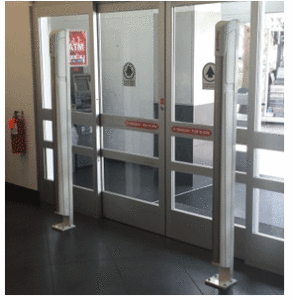 Pat Benatar once described love as a battlefield. Others have described love as intoxicating. For many romantics, February and Valentine’s Day is the month of love as people express their love for one another with flowers, chocolates, gifts, and dining. Being “drunk with love” describes that adrenaline flowing through us when we are around the one who makes our heart beat faster. We may get nervous and feel sick when we think about that special someone. We certainly don’t act like ourselves. Employers need to know that being intoxicated on love is the ONLY intoxicating influence your workers should ever be under while at work.
Pat Benatar once described love as a battlefield. Others have described love as intoxicating. For many romantics, February and Valentine’s Day is the month of love as people express their love for one another with flowers, chocolates, gifts, and dining. Being “drunk with love” describes that adrenaline flowing through us when we are around the one who makes our heart beat faster. We may get nervous and feel sick when we think about that special someone. We certainly don’t act like ourselves. Employers need to know that being intoxicated on love is the ONLY intoxicating influence your workers should ever be under while at work.
Intoxicated employees bring many problems with them to the workplace. They bring the chance of injury to themselves or others because they are not in full control of their faculties or bodies. The worker who is under the influence of drugs (legal or not) or alcohol could easily fall from ladders, improperly lift heavy items or use poor judgment when operating equipment. Impaired judgment creates hazards that can impact that employee and the people they are working around. A compactor, cardboard baler, powered forklift and a powered shopping cart mover are all pieces of equipment that require a user to be 18 years of age or older to use them. Is a worker under the influence going to avoid using equipment they are not certified to use? On top of that if the equipment is used and proper training has not been documented or the operator is underage and an injury happens OSHA may levy huge fines on the store. If you have a member of your team operating equipment while intoxicated you could be setting your business up for failure.
Employees who come to work under the influence of drugs or alcohol or who use them during a break can also be making poor mental decisions. Would you trust a cashier who is buzzed to accurately count back change to a customer? Would you be comfortable with a closing manager who has been drinking properly closing your store? Are you confident all of the registers have been closed out and money secured? Can you be sure the doors have been locked and the alarms set? With impaired workers, there is the possibility that merchandise is stocked in the wrong locations which can lead to selling merchandise below their marked prices due to store error. Do you have a person in charge of vendor credits and chargeback processing? If they are popping pills are they properly processing paperwork? Don’t count on it and don’t count on getting full credit dollars either.
Let’s not overlook the role that drug abuse and alcoholism can and do play in employee theft. This is not a blanket indictment accusing all users of being thieves but in many internal theft cases, drug and alcohol problems are a factor. Both of these habits are expensive and in order to feed the habit some people resort to theft and fraud. They may steal cash from a register or take merchandise to sell for their next fix or bottle. The theft can be in the form of passing merchandise or under-ringing merchandise for friends. It can include manipulating receipts to create fake refunds for themselves. An employee may even steal from your customers by failing to give them the proper change back from a transaction and pocketing it. Some cashiers will steal credit cards or gift cards.
Finally, there is the chance that if you hire a drug user or someone who drinks at work or reports to work under the influence they could cause customer service issues. Is your employee short tempered because they need/want a drink or hit they can’t get and they take it out on a customer? If the employee is under the influence of drugs or alcohol is their behavior irritating a patron? Your worker may not be comprehending what a customer is saying to them and forcing the customers to repeat themselves. The myriad of potential problems can raise concerns that customers may not want to return to a store in the future.
February may be a month of love and some of your employees may be caught up in the intoxication of it. Just remember to allow it to be the only thing they are under the influence of. It only makes sound business sense not to hire people who use illegal drugs. Take steps to avoid needless problems and keep your business prosperous by not hiring people who cannot pass a drug test and/or show up to work under the influence of alcoholic beverages.
 With darker daylight hours comes the need for more coffee, the use of lights earlier and a plan to keep crime away from your store or business. Have you considered that one of the following types of crime could affect you?
With darker daylight hours comes the need for more coffee, the use of lights earlier and a plan to keep crime away from your store or business. Have you considered that one of the following types of crime could affect you?
 Accidents can be costly to businesses. In fact, according to the
Accidents can be costly to businesses. In fact, according to the It’s that time of year when all store owners and managers start to make personnel decisions. Remember those people you hired in late August, maybe in September or even as late as October or November? Remember the conversations you may have had with them discussing how this was a “seasonal” position? You may have really dangled the carrot in front of them and told them that if they worked hard and showed initiative they might be retained on your staff after the holidays. Guess what? It’s time now for you to start taking a hard look at your staff and making some decisions and that isn’t always pleasant. Now you have to evaluate those employees and consider whether you want to keep them or you may have to decide if you can afford to keep them.
It’s that time of year when all store owners and managers start to make personnel decisions. Remember those people you hired in late August, maybe in September or even as late as October or November? Remember the conversations you may have had with them discussing how this was a “seasonal” position? You may have really dangled the carrot in front of them and told them that if they worked hard and showed initiative they might be retained on your staff after the holidays. Guess what? It’s time now for you to start taking a hard look at your staff and making some decisions and that isn’t always pleasant. Now you have to evaluate those employees and consider whether you want to keep them or you may have to decide if you can afford to keep them.
 Big corporations across the globe worry about cybersecurity attacks and the repercussions those attacks have on the corporation’s bottom line. These cybersecurity attacks to their servers and information databases can be costly and can bring with them costly lawsuits as well. But, according to many analysts, employee theft and shoplifting are the more concerning issues affecting the retail industry. They alone account for more than two-thirds of their shrinkage and that figure seems to be rising every year. During the holiday season, those issues become more problematic and costly, and the retail industry looks for ways to prevent the great loses they will certainly suffer during this jolly time.
Big corporations across the globe worry about cybersecurity attacks and the repercussions those attacks have on the corporation’s bottom line. These cybersecurity attacks to their servers and information databases can be costly and can bring with them costly lawsuits as well. But, according to many analysts, employee theft and shoplifting are the more concerning issues affecting the retail industry. They alone account for more than two-thirds of their shrinkage and that figure seems to be rising every year. During the holiday season, those issues become more problematic and costly, and the retail industry looks for ways to prevent the great loses they will certainly suffer during this jolly time. For many big retailers and the small mom and pop shop, the holidays are something to be excited about.
For many big retailers and the small mom and pop shop, the holidays are something to be excited about. Could it be that Santa Claus is not always a jolly, giving man? Oh yeah. Take a
Could it be that Santa Claus is not always a jolly, giving man? Oh yeah. Take a  The end of the holiday gift buying season ushers in the inevitable holiday gift return season. Clothes that don’t fit, ugly holiday sweaters no one really wanted, toys that were too old for a young child or too young for the older child all lead to returns, exchanges, and refunds. For those who have been in retail for any length of time, we know that many of these items will be returned without tags or a receipt and not even a gift receipt. It also means people will try to return merchandise to your store that was never even purchased there, despite what the customer in front of you says. This means it is prime time for those who engage in return fraud. There are so many people making returns that trying to separate legitimate refunds and exchanges from the fraudulent ones is difficult. There are steps you can take to minimize the number of fraudulent returns you accept.
The end of the holiday gift buying season ushers in the inevitable holiday gift return season. Clothes that don’t fit, ugly holiday sweaters no one really wanted, toys that were too old for a young child or too young for the older child all lead to returns, exchanges, and refunds. For those who have been in retail for any length of time, we know that many of these items will be returned without tags or a receipt and not even a gift receipt. It also means people will try to return merchandise to your store that was never even purchased there, despite what the customer in front of you says. This means it is prime time for those who engage in return fraud. There are so many people making returns that trying to separate legitimate refunds and exchanges from the fraudulent ones is difficult. There are steps you can take to minimize the number of fraudulent returns you accept. December is the month when retailers are focused on driving those end of the year sales. We push as much merchandise as possible out of the stockrooms to fill the floors. Empty salesfloor spaces should be “no-no’s” during this time of the year. We re-merchandise our fixtures to get gift ideas in front of our customers. We also take steps to increase impulse buys by filling check lanes with snacks, batteries, magazines, gift cards, etc. Managers should also be looking at last year sales information to plan schedules around peak times of the day in order to avoid long lines at the registers. While all of this is important it is just as important to start planning for your end of the year wrap up.
December is the month when retailers are focused on driving those end of the year sales. We push as much merchandise as possible out of the stockrooms to fill the floors. Empty salesfloor spaces should be “no-no’s” during this time of the year. We re-merchandise our fixtures to get gift ideas in front of our customers. We also take steps to increase impulse buys by filling check lanes with snacks, batteries, magazines, gift cards, etc. Managers should also be looking at last year sales information to plan schedules around peak times of the day in order to avoid long lines at the registers. While all of this is important it is just as important to start planning for your end of the year wrap up.